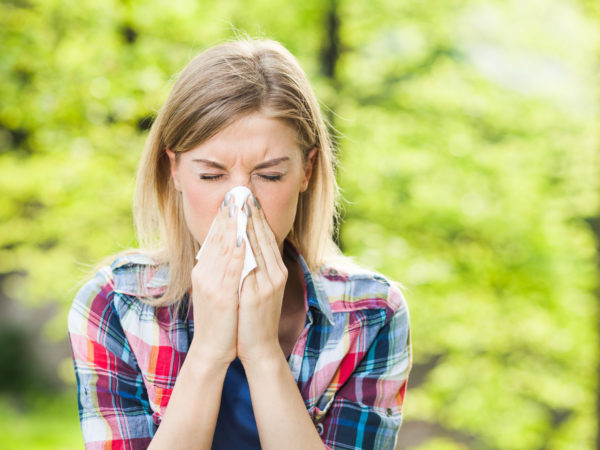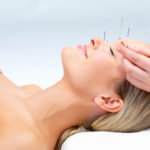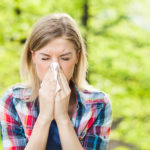Adult Allergies?
I was a pretty healthy kid. I would play outside and never had any allergies. However, I seem to have contracted allergies as an adult. Is this possible?
Andrew Weil, M.D. | September 22, 2015

Yes, it certainly is possible for adults to develop allergies, although it’s uncommon. Allergy symptoms that occur in an adult are more likely to be set off by something other than an allergic reaction. I discussed your question with Randy Horwitz, M.D., Ph.D., medical director of the Arizona Center for Integrative Medicine, and a specialist in allergy and clinical immunology. Dr. Horwitz notes that you may be referring to the symptoms of allergic rhinitis – runny nose and watery, itchy eyes – but caused by exposure to irritants, rather than an allergy.
When an adult complains of these symptoms, allergists often consider diagnoses other than allergies, since development of allergic rhinitis is uncommon in adults. Among the possible causes Dr. Horwitz mentioned are recent changes in one’s life, such as a new cat, new medications, or a new house. If there are no recent novel exposures, allergists consider a few other diagnoses:
- Non-allergic rhinitis: Dr. Horwitz says that most of the older adults he sees have this problem, also called vasomotor rhinitis, rather than a new allergic rhinitis. The symptoms are year-round runny nose (usually a thin watery discharge) and occasional sneezing or congestion. These symptoms can be aggravated or intensified by changes in temperature, relative humidity, odors, or even alcohol. Some people have gustatory rhinitis; here, certain foods cause runny nose. Patients with this problem have negative skin tests to environmental allergens.
- Rhinitis medicamentosa: This condition is seen in people who chronically use vasoconstrictor nasal sprays and also can occur with chronic nasal cocaine use. The inside of the nose is usually bright red and inflamed. This problem can develop with as little as a week’s use of the nasal sprays.
- New oral medications: Chronic rhinitis can be caused by many drugs including antihypertensive drugs to control blood pressure (alpha-adrenergic blockers, beta-adrenergic blockers, ACE inhibitors); erectile dysfunction drugs, birth control pills, and even nonsteroidal anti-inflammatory drugs. Symptoms generally subside within a few weeks after discontinuing the drug that set them off.
- Hormone issues: Hypothyroidism and pregnancy can induce nasal issues, such as congestion.
- Atrophic rhinitis: This usually is seen in older patients, can cause nasal congestion, and is often caused by bacterial colonization or infection.
True allergic rhinitis due to environmental allergies usually responds well to antihistamines, as well as to herbal remedies, especially freeze-dried stinging nettle and butterbur. If your symptoms do respond to these treatments, then you likely have the diagnosis. Conventional treatment options include oral or nasal antihistamines, nasal cromolyn (Nasalcrom), nasal corticosteroids, or immunotherapy (shots or sublingual drops).
If you have negative allergy tests but have symptoms that are set off by physical stimuli such as temperatures or odors, Dr. Horwitz says the problem may be vasomotor rhinitis. This may respond to regular use of a neti pot (or other nasal irrigation device), humidification (steam inhalation or a humidifier), or even a nasal spray containing capsaicin, the hot component of chili peppers. Studies using a commercial capsaicin nasal spray showed rapid improvement of symptoms when used over a two-week period. Finally, some pharmaceutical nasal sprays (e.g., ipratropium) will help “stop the nasal faucet.” They should be used with caution in men with prostate enlargement, as they can cause urinary retention.
See your healthcare practitioner if symptoms persist despite treatment.
Andrew Weil, M.D.
Originally published September 15, 2014.









